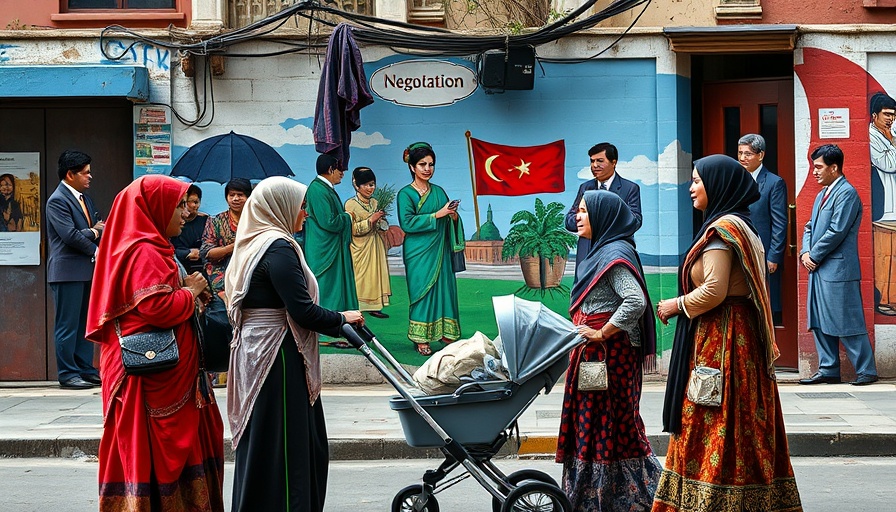
The Dilemma at the Center of U.S.-Iran Nuclear Talks
As President Trump navigates the complex landscape of negotiations with Iran over its nuclear program, he finds himself in a situation reminiscent of President Obama's approach nearly a decade ago. The core issue revolves around whether the United States can accept Iran's continued production of nuclear fuel, posing a vital question on national security versus potential diplomatic gains.
Understanding the Stakes: A Historical Context
Decisions surrounding Iran's nuclear ambitions have always provoked heated debate within U.S. political circles. President Obama faced significant pushback when he agreed to allow limited nuclear enrichment in return for greater transparency and oversight—efforts aimed at preventing Iran from reaching capacity for bomb-making. This historic agreement, abandoned by Trump in 2018, is a critical reference point as the current administration re-evaluates its strategy regarding Tehran.
Public Sentiment and Political Ramifications
The American public is also divided over these negotiations. While some argue that any deal allowing Iran to maintain enrichment capabilities is unacceptable, others urge a pragmatic approach that balances security concerns with the risks of military action. This perspective highlights the mistrust held by both sides, embodying the broader geopolitical challenges that have long defined U.S.-Iran relations.
Potential Impacts on Global Stability
Should negotiations fail, the specter of war looms large. Israeli Prime Minister Netanyahu's recent escalations in rhetoric, including calls for military action against Iran, emphasize the urgency of the situation. Analysts warn that a preemptive strike not only risks immediate conflict but could escalate broader regional tensions, particularly involving other Middle Eastern countries wary of Iranian influence.
Lessons from the Past: What Can Be Learned?
Historically, diplomatic engagement has proven to be a double-edged sword. While it moments of peril, efforts to engage diplomatically with Iran have shown some success in curtailing its nuclear ambitions, as illustrated by previous agreements. The lessons learned highlight that dialogue can sometimes yield more stability than confrontation, a notion that Trump must grapple with as he considers his next moves.
Future Predictions
The implications of Trump’s decision are profound, not only for U.S.-Iran relations but for global diplomacy as well. Should a new agreement emerge that allows for limited enrichment under strict oversight, it could signify a new approach to conflict resolution that emphasizes negotiation over militarization. This would be a pivotal moment for the Trump administration and its foreign policy legacy.
Creating a Holistic Solution: A Path Forward
A comprehensive solution to the nuclear crisis will require more than just negotiations; it will demand cooperation among allies and a clear strategy that addresses Iran's regional ambitions in addition to its nuclear program. Building consensus within the U.S. Congress, along with maintaining strong communication with international partners, will be essential in crafting a viable path forward.
In closing, the challenges presented in the current U.S.-Iran negotiations reflect broader patterns in international diplomacy. Striking the right balance between force and dialogue is key. As stakeholders in this delicate situation, it's crucial for the American populace and Congress alike to engage in informed discussions around these critical decisions influencing our national security.
 Add Row
Add Row  Add
Add 




 Add Row
Add Row  Add
Add 

Write A Comment